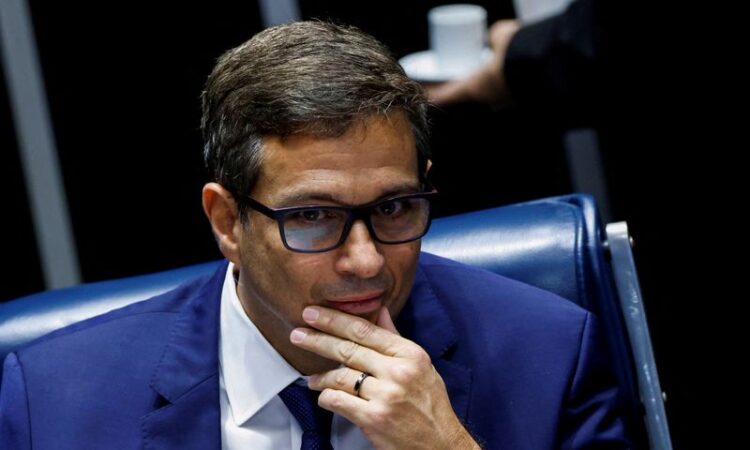
BRASILIA (Reuters) – Brazil’s top central bank officials on Friday praised the government’s commitment to eliminate the primary deficit in its 2024 budget, saying fiscal improvement is vital for aligning inflation expectations with official targets.
“Maintaining the (fiscal) target is super-important,” said central bank chief Roberto Campos Neto at an event hosted by business group Lide in Washington.
On Thursday, President Luiz Inacio Lula da Silva’s administration submitted a bill to lawmakers envisioning a balanced budget next year.
Market participants surveyed by the central bank currently anticipate a 2024 primary deficit equivalent to 0.8% of Gross Domestic Product, but Campos Neto said the provisions should improve as the government’s revenue-enhancing measures gain approval in Congress.
“We need this fiscal convergence to achieve a healthier monetary convergence, which means lower interest rates for a longer period,” he said.
Echoing the same sentiment, monetary policy director Gabriel Galipolo said during an event hosted by brokerage XP in Sao Paulo that fiscal improvement in the country is “relevant” for bringing inflation expectations closer to official targets.
Lula’s new fiscal rules constrain expense growth to a percentage of the revenue increase, he noted, so that if revenues fall short, expenditures will also be limited.
The central bank kicked off an easing cycle in August with a 50-basis-point reduction, lowering its benchmark interest rate to 13.35%, after keeping it unchanged for nearly a year in an effort to curb inflation.
The divided decision, with part of the bank board supporting a smaller cut, is less significant than it may appear, Galipolo said, noting that policymakers were unanimous on maintaining future reductions at 50 basis points in upcoming meetings.
Campos Neto stressed that the battle against inflation continues, adding that data, including the closely monitored service prices, is showing improvement, though at a sluggish pace.
He also said Brazil’s second-quarter GDP performance was “pretty good,” surpassing expectations and had positive elements, which should improve public revenues.
(Reporting by Marcela Ayres; Editing by Kylie Madry and Richard Chang)





